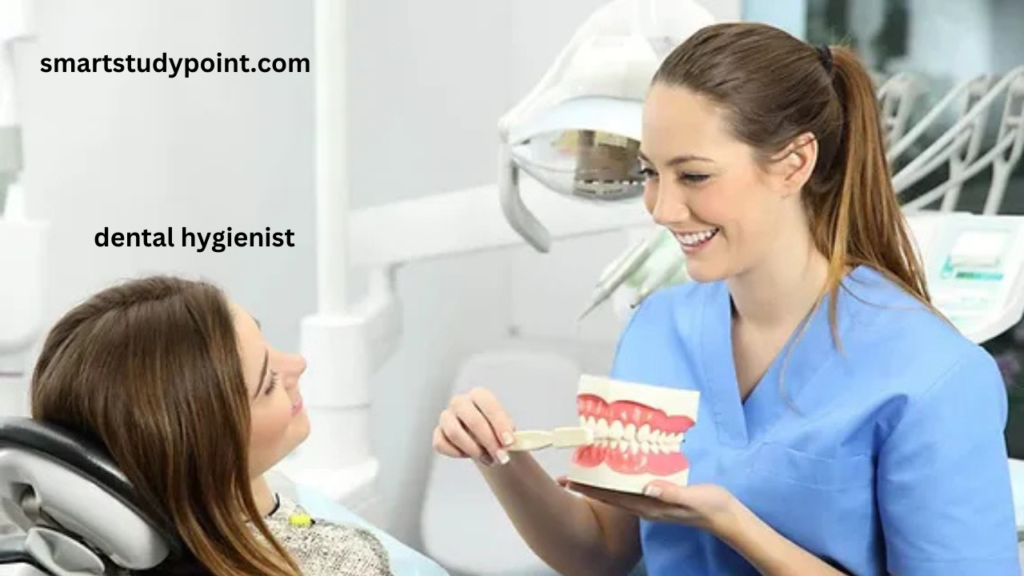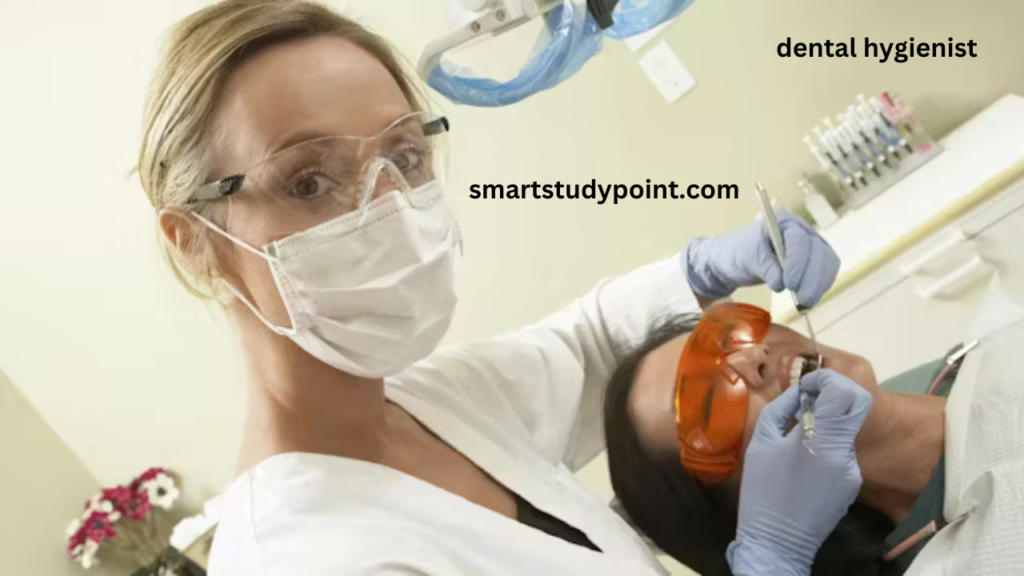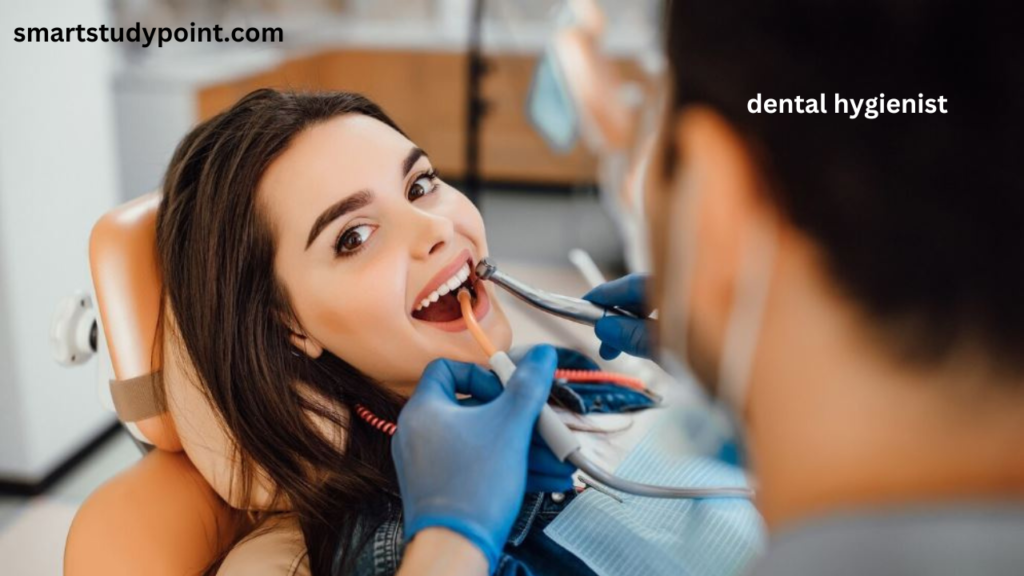Dental hygienist career is advancing and one among the prospects for those who are aspiring to work in any dental career field. This line of work is taken up by persons meeting certain criteria and comes across the oral cavity a lot. For more details on how to become a dental hygienist which this guideline offers for anyone interested in health care career, go to.

What Should a Dental Hygienist Do?
It Rash; in order to assess their patient’s overall oral health, dental hygienists clean and assess. They also support a dentist and serve patients who are mostly aimed at teaching them how to maintain the cleanliness of oral cavities.
In addition to the following, a dental hygienist’s main duties include:
To establish a common ground with the level of care required for the teeth of the patients, the professional should clean and polish their teeth to get rid of plaque, tartar and stain. Operate and progress dental X-ray.
- Deliver first assessment of patients and aid the dentist whenever necessary.
- Give patient local anesthetics before their procedure.
- Tooth fluorides and sealants are to be placed on the teeth of the patient.
- As an option, keep the records of patients’ primary treatment and general care using this tool.
- Identify the picture of oral health of a specific patient.
- Teach clients how to take care of their mouth.
- Discuses dental findings with dentists regarding their patients.
- Follow a number of hand, power, and ultrasonic tools in handling their tasks.
How to Choose a Dental Hygiene Program?
The process of choosing the right dental hygiene program is somewhat a challenging process especially for those people who have very little or even no knowledge at all to the existence of a variety of options available to the me.
Any school program that has the capability of producing dental hygienists should prepare anybody who intends to be one for the tasks they are going to come across each day. One of the important criteria fighting for attention is the question, which school to choose as getting acquainted with the profession is important.
Accreditation:
Dental hygienists must register for and successfully complete the course that is approved by and Santos acknowledges the board of dental examiners. Particular attention is paid where accreditation can be described as a program officially recognized or authorized by the Commission on Dental Accreditation (CODA).It averts that it is the only that the United States Department of Education has recognized, which recognizes dental hygienist programs 1.
Types:
The following categories of dental hygienist CODA-accredited programs are available for consideration.
Entry-level:
This program track is organized for the student who lacks any previous experience in this area. The CCNE program levels includes the associate degree programs, baccalaureate degree programs as well as post-baccalaureate degree programs.
Degree completion:
This program track is for the Licensed Dental Hygienist and who would like to progress further education past the entry level program. This program, which grants a bachelor of science in dental hygiene or a related topic, is therefore open to individuals who have previously obtained a certificate or an associate degree in the field.

Length:
This will determine by the kind of learning institution of the program as well as the degree offered for the course. For example, Concorde offers a dental hygienist program that lasts between 17- 22 months depending on the campus; on the other hand, the bachelor program takes 4 years.
Curious where the path lies to be a dental hygienist?
Please click on the link below to check our list of the Dental Hygienist Programs near you! An associate degree is the basic level of education that will enable one to train to become a dental hygienist. A two-year program may enable the prospective dental hygienists get into the field than having a bachelors’ degree.
The admission requirements for entrance into a Dental Hygiene program<|human|>Dental Hygiene Admission Requirements:
Hence there may be variance of the admission requirement depending on the type of program offered for dental hygiene program.
A few typical requirements for admission to a dental hygiene program are as follows:
High school courses:
Health and biology in high school is useful, together with mathematics, chemistry and psychology when applying for a dental hygiene course, although not compulsory.
Skills:
Skills that a dental hygienist should have comprises of: Conduct research; solve problems; dexterity of hands; accuracy; communication and interpersonal skills; a caring attitude; technical knowledge.
CPA requirements:
Generally, some program has certain GPA requirements which differ from one institution to another.It is important to state here that unlike degree completion programs entry level programs in this field does not presuppose prior education in this field either.
A prospective student preparing to enter a dental hygiene program may find the following advice helpful:
Research the prerequisites:
A prospective student to be a candidate must ensure they do the research to qualify to join the institution.
Draft a strong personal statement:
The statements should explain intentions and career goals, as well as make a student different from other candidates. Maintain professionalism during the interview: In case of programs which demand interview, a candidate should wear the best outfit; switch off the cellphone and be keenly involved with the interviewer. More details on what a dental hygiene program entail Instructor supervised procedure of Dental Hygiene Program student applying local anesthetic to patient.

Here is a list of three factors that one needs to think through, before choosing this course of action and becoming a dental hygienist.
Dental science, dental hygiene science, biomedical science, and general education are all covered in the majority of the programs.
Concerning the course material:
Oral health, dental operations and management, the use of software to handle courses, supplies, equipment, hospital radiography, pain management, infection control, and other course-related topics. They also aid in interpersonal and communication skills development.
Associate Degree Programs:
Besides the common curriculum that is involved in education on oral health, programs that will lead to the awarding of an associate degree in dental hygiene will involve the completion of supervised clinical hours. This coursework is often practical work to allow the student to gain several clinical hours in a dental field.
Bachelor’s Degree Programs:
The duration of bachelor’s degree courses depends with the type of university or college in which a student joins. Students who start their carrier with an associate degree can also expect to complete it in one or two years less than others. This program type is for Dental Hygienists who wish to develop the knowledge in specialized area. These are considerations that may be included in programs taught in four-year courses among them being dental health theory as well as dental conditions.
- The JCNDE is a department of the ADA and it offers the NBDHE that all the intending dental hygienists have to write to gain licensure 2
- The following details about the NBDHE are important for everyone interested in dental hygiene.
Application requirements:
They can use the DENTPIN number to apply for each part of the test, though they may register for it. The JCNDE also expects every test taker to have graduated from a CODA accredited program.
Test material: It consists of 350 items and is designed to test dental hygiene practice, clinical services, community health/ research, and case-based items. This test assesses a candidate’s knowledge in the areas that relate to dental heath including use of preventive decay agents, interpretation of radiographs, management of dental hygiene care.
Preparation materials:
The JCNDE has tutorial, sample tests, and reference texts, available to assist candidates revise for the exam.
Results and audit requests:
An example of how a person may obtain an audit request is by going into the website, locating the login for audit requests using the DENTPIN, is follow the necessary steps laid down for the audit request as well as make the necessary payment.
Dental Hygienist Requirements:
A dental hygienist with scrubs in dental office gazes at the camera with an affirming look. Dental hygienists require an associate degree and licensure for hygiene in their state. These course requirements differ from state to state; however, what each of these requirements seeks to achieve during the licensure exercise is the same. The state licensure processes of each state guarantee that dental hygienists perform to the required professional standards and do not endanger patients’ lives.
Primary Requirements:
Of course, the most reliable source to learn about state requirements and procedures is the state that issues licenses.
Nevertheless, regardless of the state in which they are licensed, applicants usually fulfill three basic requirements:
Education requirement:
To be licensed for practice, dental hygienists must at least possess an associate degree. Written examination: All licensing jurisdictions throughout the United States demand that the candidates provide proof that they have cleared the NBDHE.

Clinical examination:
Some licensing jurisdictions have what is referred to as clinical requirement. Furthermore, the majority of state boards of dentistry employs a regional testing organization to conduct this examination.
Alternatively, Licensure Routes:
Several states came up with other routes to certification. In addition, a person can turn to the specific state board and inquire about the information on the requirements for the nontraditional candidacy 3
Limitations:
The dental profession is governed by the state board of dentistry in each state.
The law made by the state legislature also put a check on the board. Its authority often includes the following:
- Licensure qualifications as a working career model for professional responsibility.
- Granting of license to qualified applicants.
- Development of guidelines on how practice and conduct should be.
- Sanctioning erring persons who are practicing the profession.
- Issuance of regulations that govern people who operate in the given field.
- The likelihood of a dental hygienist finding a job is usually good because today; there is high demand for dentalcare workers.
Finding a Job as a Dental Hygienist:
The last step in their academic process might be another try at getting a job as a dental hygienist. The suggestion is that they should focus own unique selling points that would assist them advance in their careers. Essential skills to mention on the dental hygienist resume are dentistry experience, good interpersonal communication, listening, focused, and well-coordinated for the kind of work to do.
People can also share information about their work experience in the corresponding field, including practical training and supervised practical experience. The employment rate of this workers is growing much quicker than average employment rates for all occupation, as the United States Bureau of Labor Statistics explained. It is impossible to generalize the changes for job prospects because they will differ depending on a given area and an employer’s organization.
FAQS
What does the dental hygienist do?
By cleaning your teeth of plaque and tartar, a dental hygienist lowers your risk of gum disease and cavities They also offer preventive treatments like sealants and fluoride.Dentists and dental hygienists collaborate to help you attain and preserve the best possible oral health.
What is a dental hygienist going to do?
The primary concerns of dental hygienists are “preventive” dental health and gum disease treatment, which includes teaching you proper at-home hygiene techniques and assisting you in maintaining the health of your teeth and gums. Typically referred to as a “scale and polish” or prophylactic, this involves having your teeth professionally cleaned by eliminating tartar and plaque.
How do a dental hygienist and a dentist vary from one another?
Dentists usually work to detect, diagnose, and treat gum disease and tooth decay. In addition to prescribing medication, they frequently use local anesthetics for simple operations. Dental hygienists help dentists do cleanings and give patients advice on how to take care of their teeth.
What is the dental hygienist with the greatest salary?
Dental hygienists earn the highest mean salaries in the following states and districts: Alaska ($113,770), California ($111,580), Washington ($111,430), Oregon ($95,360), and New Jersey ($94,610). How Much Does Your City Pay Dental Hygienists? View current compensation offers for positions in your industry.
What is the most advanced dental hygiene degree?
Additionally, a lot of schools provide dental hygiene bachelor’s and master’s degrees (MSDH and BSDH, respectively). A dental hygiene doctorate (DDH) might be available in the future. Hygienists who obtain any of these degrees, however, do not graduate with a “RDH degree.”
A hygienist who performs fillings?
Dental hygienists versus dentists the duties of a dental hygienist…Under the dentist’s guidance, your dental hygienist may perform fillings if they are qualified to do so. Although dental therapy is a distinct certificate, dental hygienists typically hold both of these credentials in addition to a hygiene qualification. The majority of fillings are among the several dental operations they will be educated to perform.
Conclusion:
An oral or dental hygienist is a licensed dental practitioner who is registered with a dental association or other regulating organization in their nation of practice. A dental hygiene associate’s or bachelor’s degree from an authorized institution or university is required of registered dental hygienists before they may sit for clinical and written board exams. Hygienists are primary healthcare providers who, after obtaining their license, can work alone or in conjunction with dentists and other dental specialists to offer comprehensive oral health care. Their education and training are centered on the prevention and treatment of various oral disorders.Please contact on my website link in the case of any issue.Thanks
Best platform for advises
thanks bro
This is a very useful website. I have gained a lot of information from this website.This is the best platform for research and study.